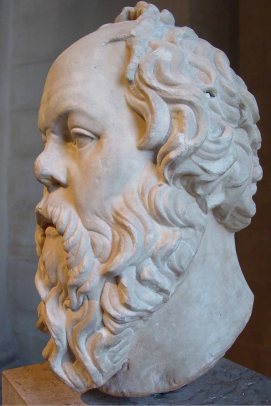Edge.org’s big question for 2014. 175 short essays by some of today’s best known thinkers. “Science advances by discovering new things and developing new ideas. Few truly new ideas are developed without abandoning old ones first. As theoretical physicist Max Planck (1858-1947) noted, ‘A new scientific truth does not triumph by convincing its opponents and making them see the light, but rather because its opponents eventually die, and a new generation grows up that is familiar with it.’ In other words, science advances by a series of funerals. Why wait that long?”
Month: January 2014
Free will, fate, chance
Some good books about freedom and luck. “Many philosophical theories try to evade the uncomfortable truth that luck and fate play a role in the conduct of our moral lives, argues philosopher Paul Russell. He chooses the best books on free will and responsibility. “
Why do your procrastinate?
Is it because you are a succession of selves and not a single self moving through time? “We think of our future selves as strangers.”
Hyperobjects … you’re only human
Are there objects too immense to comprehend? Review of Timothy Morton’s Hyperobjects. “When he declares that the world is over, Morton is not summoning visions of a Hollywood We’re-all-gonna-die! cataclysm but, rather, the end of the cozy anthropocentric worldview that has governed Western thought since the advent of Greek philosophy. It doesn’t matter what you think of Kantian epistemology or Hegelian teleology because, Morton claims, the ‘privileged transcendental sphere’ of philosophy can’t protect us from ultraviolet rays or rising ocean levels.”
Does the existence of morality prove the existence of God?
Paul Bloom says no. “It is a mistake to see the powerful and unique morality that modern humans possess as a divine gift. Doing so distracts us from its origin as a cultural accomplishment, best understood in terms of processes such as the exercise of reason and imagination … .”
Is trolleyology dangerous?
The dangers of thought experiments in ethics. “Thus there are the two dangers of ethical thought experiments: First, they cannot be used as conclusive disproofs. … Second, they might seem convincing and clear even though they are not.”
What are the chances we are in a computer simulation?
Is this life real? “Philosophers and physicists say we might be living in a computer simulation, but how can we tell? And does it matter?”
Does god exist? And which god are we talking about anyway?
In “The One Theology Book All Atheists Really Should Read, Oliver Burkeman asks, “What if most modern arguments against religious belief have been attacking the wrong God all along?” And in “The ‘Best Arguments for God’s Existence’ Are Actually Terrible,” Jerry Coyne replies that the god the vast majority of believers believe in is not that different from the god philosophers talk about and that it doesn’t really matter anyway because the philosophers’ “arguments are simply made-up stuff.”
